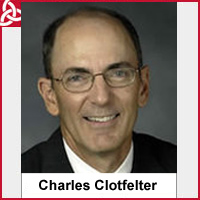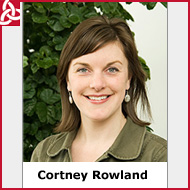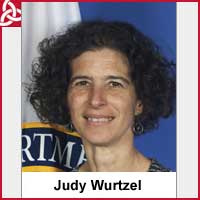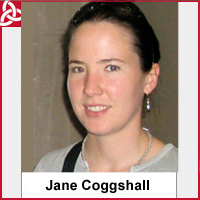Systems and Strategies for Addressing the Inequitable Distribution of Teachers
TQ Center Webcast
Thursday, May 21, 2009, 3 p.m.–4:30 p.m. (ET)
Summary
This webcast, facilitated by Candace Crawford, senior policy associate at The Education Trust, brought together experts and practitioners to discuss the existing research and strategies that address the inequitable distribution of teachers. Presenters included Judy Wurtzel, adviser to the secretary, U.S. Department of Education; Cortney Rowland, senior policy associate at the TQ Center; and Charles Clotfelter, Ph.D., professor of public policy, economics, and law at Duke University. The presentations included an overview of the research, information about the requirements and potential funding through ARRA that can be used to address the inequitable distribution of teachers, and a discussion of useful resources from the TQ Center.
Presentations
Educational Disparities by Income and Race (PDF 293 KB)
Charles Clotfelter, Ph.D.
Duke University
American Recovery and Investment Act: Saving and Recreating Jobs and Reforming Education (PDF 770 KB)
Judy Wurtzel
Advisor to the Secretary, U.S. Department of Education
TQ Center Resources to Support Equitable Teacher Distribution Efforts (PDF 577 KB)
Cortney Rowland
Senior Policy Associate, National Comprehensive Center For Teacher Quality (TQ Center)
Presenter Bios
Charles Clotfelter, Ph.D.
Charles Clotfelter, Ph.D., is a Z. Smith Reynolds professor of public policy studies and professor of economics and law at Duke University. He also is the director of the Center for the Study of Philanthropy and Voluntarism at Duke and is a research associate of the National Bureau of Economic Research. At Duke, he has served as vice provost for academic policy and planning, vice chancellor, and vice provost for academic programs.
His research has covered the economics of education, public finance, the economics of gambling and state lotteries, tax policy and charitable behavior, and policies related to the nonprofit sector. Among his books on education are Buying the Best: Cost Escalation in Elite Higher Education (1996) and (with Ronald G. Ehrenberg, Malcolm Getz, and John J. Siegfried) Economic Challenges in Higher Education (1991). His most recent book is After Brown: The Rise and Retreat of School Desegregation (2004).
Together with Helen Ladd and Jacob Vigdor, Dr. Clotfelter has been examining questions related to teacher quality and student achievement using data from the state of North Carolina, and he has published numerous articles based on this research.
Dr. Clotfelter earned a doctorate in economics from Harvard University.
Cortney Rowland
 Cortney Rowland is a senior policy associate at Learning Point Associates and a member of the educator quality team. Her work focuses on alternative compensation, teacher evaluation, and recruiting and retaining high-quality teachers for at-risk and hard-to-staff schools.
Cortney Rowland is a senior policy associate at Learning Point Associates and a member of the educator quality team. Her work focuses on alternative compensation, teacher evaluation, and recruiting and retaining high-quality teachers for at-risk and hard-to-staff schools.
Rowland serves as the coordinator of policy products and services for the National Comprehensive Center for Teacher Quality (TQ Center). In this role, she provides technical assistance and consultation to regional comprehensive centers and states on educator quality policy issues. She also participates in the development and dissemination of print and online products and resources for the TQ Center.
In addition, Rowland leads the contributions of Learning Point Associates to the national Center for Educator Compensation Reform by coordinating content development, policy analysis, and dissemination efforts. She also is the principal investigator for two evaluation projects in Iowa: one that focuses on improving teacher preparation and one that focuses on alternative compensation. Rowland has presented and facilitated discussions at numerous forums and conferences as well as authored or coauthored several publications for a variety of audiences.
Rowland earned a master’s degree in sociology from Bowling Green State University in Ohio and is working on a doctoral degree in sociology at Loyola University–Chicago.

Judy Wurtzel recently joined the U.S. Department of Education as an advisor to the secretary and consultant. She is focusing on technical assistance to support implementation of the American Reinvestment and Recovery Act.
Since 2005, Wurtzel has been a senior fellow and then codirector of the Education and Society program at the Aspen Institute, which provides a forum for education practitioners, researchers, and policy leaders to reflect on efforts to improve student achievement and to consider how public policy changes can affect progress.
Prior to joining the Aspen Institute, Judy served for six years as the executive director of the Learning First Alliance, a permanent partnership of 18 national education associations with more than 10 million members. Under Wurtzel’s leadership, the Alliance spurred collaborative national and state efforts by the elected leaders and senior staffs of its member organizations.
From 1993 to 1999, Wurtzel served as a senior advisor at the U.S. Department of Education, working on a wide range of elementary and secondary education issues, including the reauthorizations of the Elementary and Secondary Education Act and the Individuals with Disabilities Education Act. As a senior advisor to the deputy secretary of education, Wurtzel launched and led America Counts, the Department’s mathematics improvement effort.
Wurtzel lives in Maryland, where her daughter attends a Montgomery County public middle school.
Moderator
 Candace Crawford
Candace Crawford
Candace Crawford is a senior associate for PK–12 school and district assistance at the Education Trust. Previously, she was a senior associate for teacher quality. During her first two years at the Ed Trust, she coordinated the Instructional Practices of Effective Teachers Study, a two-year study of middle school mathematics teachers in the Kansas City, Missouri, metropolitan area. This study was funded by the Ewing Marion Kauffman Foundation.
Crawford has taught sixth-grade mathematics and middle school and high school history. She also has worked in higher education, serving as an assistant director of residential life and assistant women’s basketball coach at Bowdoin College. She currently serves as vice president of the board of trustees at Capital City Public Charter School, a nationally recognized expeditionary learning school in Washington, D.C.
Crawford earned a master’s degree in education policy from the University of Pennsylvania.
Prewebcast Presentations
Jane Coggshall, Ph.D.
Getting to the "Why" of Teacher Distribution: A Tool for States (PDF)
 Jane G. Coggshall, Ph.D., is a research associate at Learning Point Associates. For the National Comprehensive Center for Teacher Quality (TQ Center), she helps develop print and online resources on educator quality issues for regional and state officials. She authored the Communication Framework for Measuring Teacher Quality and Effectiveness and several TQ Research & Policy Briefs on teacher quality topics. Dr. Coggshall has provided technical assistance to states and regions regarding equitable teacher distribution, teacher effectiveness, and teacher preparation. For Learning Point Associates, she has conducted research on teacher interstate mobility and the impact of professional development. She is principal investigator on two studies exploring the needs, policy preferences, and potential of Generation Y teachers. Dr. Coggshall has taught middle-level mathematics at an elementary school and at a junior high school. Her original research for her doctorate explored state-level reading policy, the use of portfolios for the assessment of beginning teachers, and the local effects of national teacher quality policy. Her dissertation, High School Teacher Assignment and the New Governance of Teacher Quality, won the Lester W. Anderson Memorial Award for best dissertation in secondary school administration. Dr. Coggshall earned her doctoral degree in education studies from the University of Michigan.
Jane G. Coggshall, Ph.D., is a research associate at Learning Point Associates. For the National Comprehensive Center for Teacher Quality (TQ Center), she helps develop print and online resources on educator quality issues for regional and state officials. She authored the Communication Framework for Measuring Teacher Quality and Effectiveness and several TQ Research & Policy Briefs on teacher quality topics. Dr. Coggshall has provided technical assistance to states and regions regarding equitable teacher distribution, teacher effectiveness, and teacher preparation. For Learning Point Associates, she has conducted research on teacher interstate mobility and the impact of professional development. She is principal investigator on two studies exploring the needs, policy preferences, and potential of Generation Y teachers. Dr. Coggshall has taught middle-level mathematics at an elementary school and at a junior high school. Her original research for her doctorate explored state-level reading policy, the use of portfolios for the assessment of beginning teachers, and the local effects of national teacher quality policy. Her dissertation, High School Teacher Assignment and the New Governance of Teacher Quality, won the Lester W. Anderson Memorial Award for best dissertation in secondary school administration. Dr. Coggshall earned her doctoral degree in education studies from the University of Michigan.
Eric Hirsch
Teacher Working Conditions: Ensuring All Schools Have Environments Where Teachers Want to Work and Students Can Thrive. (PDF)

Eric Hirsch is the director of special projects at the New Teacher Center at the University of California at Santa Cruz, a national organization committed to improving student learning by supporting the development of an inspired, dedicated, and highly qualified teaching force. Hirsch has served as the executive director of the Center for Teaching Quality, executive director of the Colorado-focused Alliance for Quality Teaching, and education program manager at the National Conference of State Legislatures (NCSL).
Hirsch’s work is largely focused on better understanding and improving teaching and learning conditions, recruiting and retaining teachers, and alternative compensation. He has surveyed more than 500,000 educators in 14 states about their school environment during the past five years. He has worked with and testified to legislatures and policymakers in more than 35 states and presented at numerous conferences about issues of teaching quality and governance.
Hirsch has written more than 50 articles, reports, book chapters, and policy briefs published by organizations such as NCSL, the National Governors Association, the Association of Supervision and Curriculum Development, the U.S. Department of Education, and the University of Pittsburgh Press and in publications such as Congressional Quarterly and the Journal of Special Education.
Hirsch received his teacher certification in Massachusetts and earned his M.A. from the University of Colorado.

